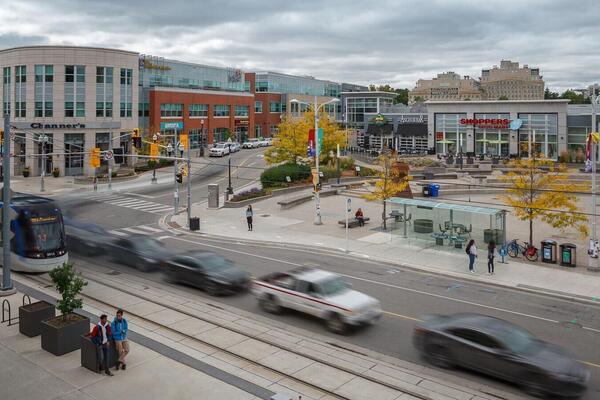
A fight against climate change is happening under water
Coastal Carbon receives $1.6 million in funding to accelerate the development of AI-driven seaweed biomass monitoring system

Coastal Carbon receives $1.6 million in funding to accelerate the development of AI-driven seaweed biomass monitoring system
By Naomi Grosman VelocityMonitoring seaweed growth has the potential to accelerate regenerative seaweed farming and ocean restoration, and scale blue carbon initiatives, all presenting important opportunities in the fight against climate change.
To bring key data about what’s happening below the surface above water, Velocity company Coastal Carbon received $1.6 million in funding from Canada’s Ocean Supercluster (OSC) to undertake the AI-Driven Sensors for Seaweed Measurement Project.
In collaboration with seaweed farmer HoldFast NL, the AI-Driven Sensors for Seaweed Measurement Project, will enable Coastal Carbon to develop its small, non-intrusive sensors to remotely measure seaweed biomass and quantify that data using artificial intelligence.
“The ocean is a huge resource to fight climate change, but crucial data is largely inaccessible,” says Thomas Storwick (BASc '19), co-founder of Coastal Carbon. “This project will advance our sensor and measuring technology and bring this important data from underwater, which stands to accelerate the regeneration of our oceans’ ecosystems and bring added confidence to stakeholders in the blue carbon credit market.”
Co-founder Kelly Zheng (BASc '19) says that due to how difficult seaweed is to analyze, the ocean has largely been untapped as an important resource to fight climate change. Zheng is a PhD candidate in Mechatronics Engineering at the University of Waterloo. In 2022, she received an Entrepreneurial PhD Fellowship which allows her to complete the Master of Business Entrepreneurship and Technology program part-time and tuition-free while working on her doctoral studies and Coastal Carbon.

“We are using sensors and artificial intelligence to detect and analyze what’s underwater,” Zheng says. “Seaweed is one of the fastest growing organisms in the world, providing large amounts of carbon sequestering and is an important resource that should not be overlooked.”
She adds that measurement accuracy is one of the biggest problems blocking blue carbon credits from reaching the market.
Coastal Carbon’s tech can better measure blue carbon credits for seaweed farmers, and the company is working with stakeholders on the supply and demand side — farmers credits and companies looking to purchase ones to offset greenhouse gas emissions.
“The ground truth data collected from this project will enable us to increase accuracy of our AI models and allow us to continually calibrate, especially important as the ocean itself changes due to climate change,” Zheng says. “Seaweed farmers want to get what they deserve based on what they are producing, and the industry wants quality carbon credits — our objective is to develop the technology and work with experts and seaweed farming communities to advance towards a carbon neutral future.”
See how Velocity accelerates entrepreneurs’ growth from ideas to early-stage startups and beyond.

Read more
It Started in Waterloo: An Astronaut's Journey into the Universe of Innovation, narrated by Chris Hadfield, highlights the University of Waterloo’s role in igniting innovation within the region and beyond.

Read more
Discover how Waterloo alumni are driving Canada’s economy with five tech companies making a local and global impact

Read more
12 Waterloo students and postdoctoral fellows receive up to $10,000 in funding to develop their green-tech solutions
The University of Waterloo acknowledges that much of our work takes place on the traditional territory of the Neutral, Anishinaabeg, and Haudenosaunee peoples. Our main campus is situated on the Haldimand Tract, the land granted to the Six Nations that includes six miles on each side of the Grand River. Our active work toward reconciliation takes place across our campuses through research, learning, teaching, and community building, and is co-ordinated within the Office of Indigenous Relations.